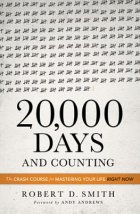They sure could frustrate Jesus!
After everything that happened on the last three days of Jesus’ life, the eleven remaining disciples chose not to believe the reports that Jesus was alive. Peter and John had even seen the empty tomb.
Jesus was frustrated enough with them that he rebuked the eleven the first time he was with them. (Mark 16:14) Hardness of heart seemed to be an ongoing problem for the twelve throughout their training. (cf. Mark 6:52)
Did they not really believe Jesus could be risen or was it something else?
Since he appeared first to Mary Magdalene and a couple of unnamed guys, I’ll go out on a limb and say it was something else. Why would Mary and these two unnamed disciples, that weren’t of the eleven, be who Jesus chose to see first?
There are an awful lot of Christians that act like that.
Somehow they are a little more deserving, they are a little more righteous or a little higher rank than another. God just doesn’t work like that though. (Acts 10:34, Romans 2:11) The gospel is for everyone and the Apostles were told to make sure all creation heard it (Mark 16:15)
As for us, we are to follow that example and make sure that we do all we can to spread the word exactly like they did. (2 Timothy 2:2) Sometimes it is a little difficult to reach out to another who is not like us. Whatever the reason for that is, it is a dangerous position to be in!
Take some time to consider Jesus’ rebuke when faced with a decision to help someone. A hardened heart does not get us to heaven.













March 12, 2014
Comments Off on Who Deserves the Gospel?